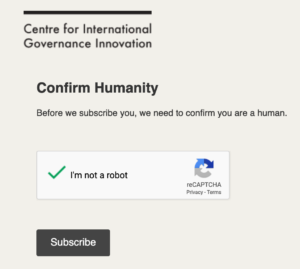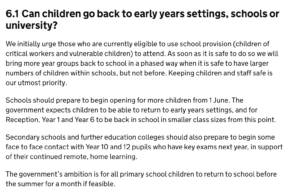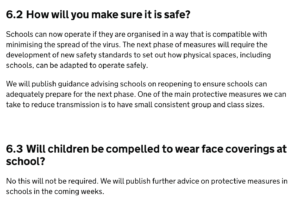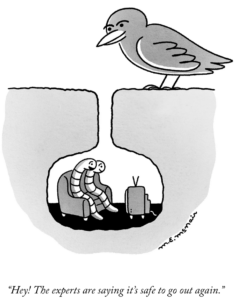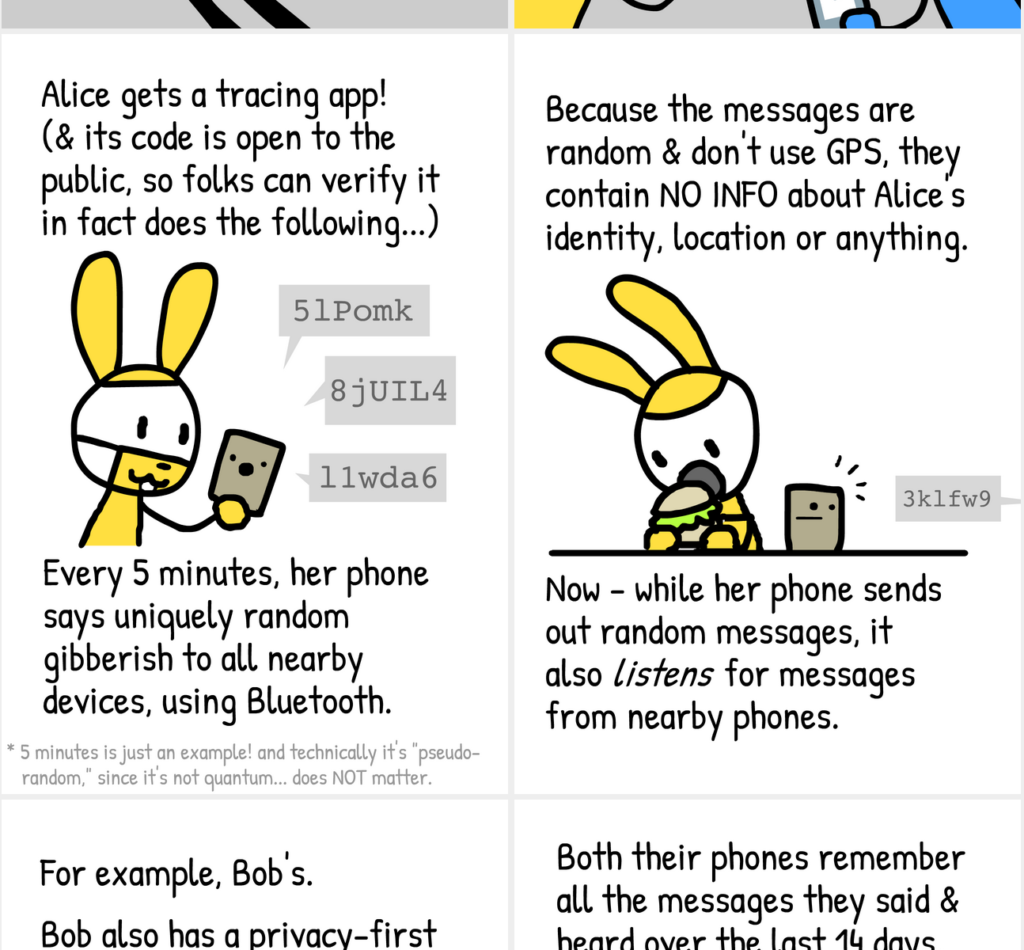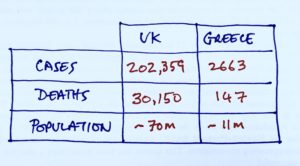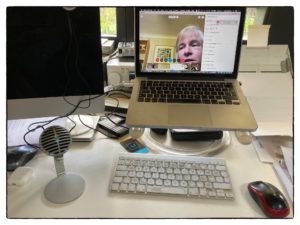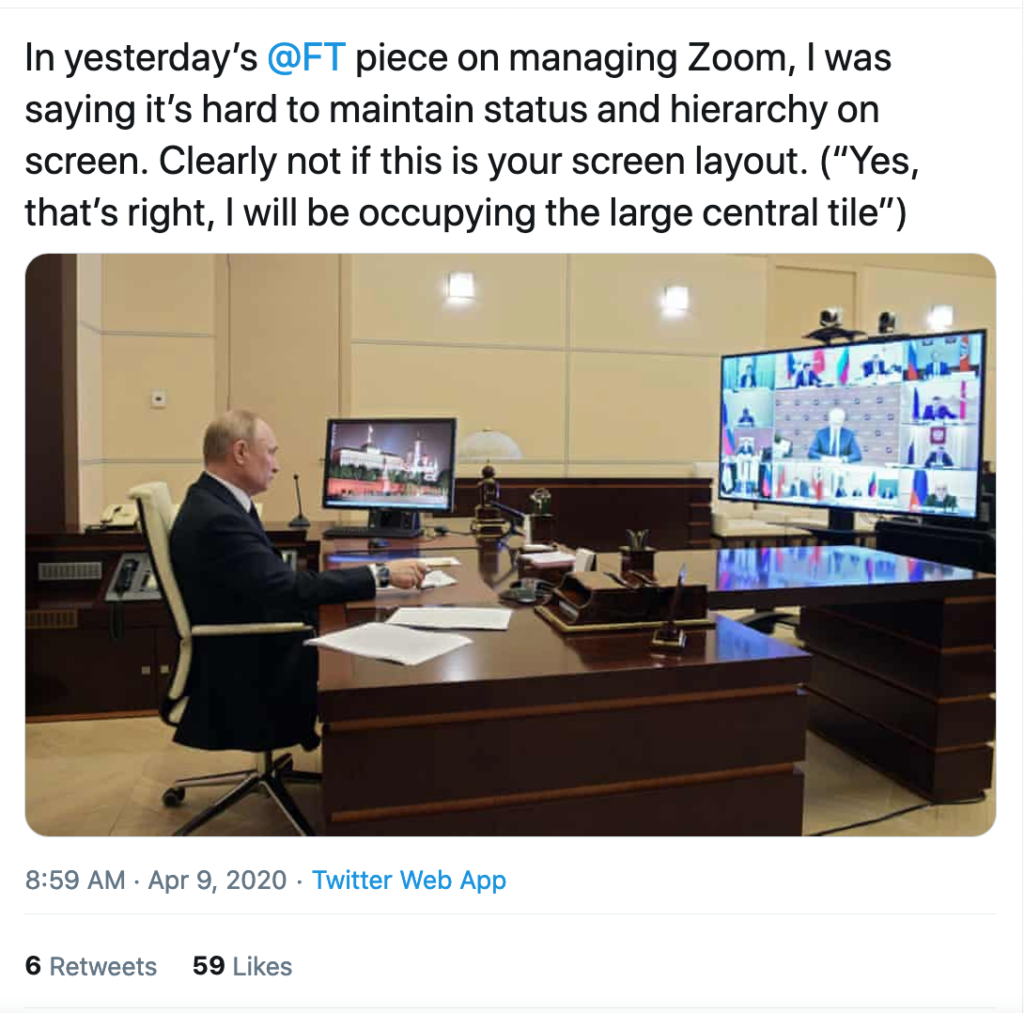The Turing Test in reverse
Funny reversal. The Turing test was supposed to enable humans to decide whether what they were interacting with was a human or a machine. Now we have machines setting us a test to prove that we are human.
Being messy when everything is clean
Extraordinary (and long) blog post by Rachel Coldicutt, which she herself describes as “a scrapbook of links and questions that explore how civil society might be in a digital world. The first part defines civil society, the middle sections set out some context for how communities are changing, and the last part asks how non-technical experts can get messy with technology.”
It’s long but worth the time, because it’s a thoughtful and thought-provoking reflection on the state we (and the pandemic) have got us into. Here’s a sample from her reflections on the way our public sphere may change:
The intangible benefit of the public sphere is similar to what Richard Sennett calls the cité in his book Building and Dwelling. He describes the cité as the feeling of a place, a consciousness— not the built environment but the character and mood of a neighbourhood that has until now been played out in playgrounds and cafes and pubs.
Some parts of this “place consciousness” might be moving to WhatsApp and NextDoor, where the voices are different, the words are typed and no one can see your face. It’s a different feeling, and there will no doubt be different organisers and actors; some of those will be people who were too shy to put up their hand in a community centre, others will be natural organisers, some will be put off by writing things down. But whoever is doing the typing, the community that is built will be and feel different to the ones we knew before, when we could speak quietly and see one another’s face. Serendipity happens differently online — often driven by data, and frequently unconnected to place.
Thanks to Sheila Hayman for the link.
Time to rethink the face mask – Erin Bromage
Erin Bromage is the new kid on the Coronavirus blogging block. She He seems to have a thoughtful and informed take on every aspect of the phenomenon — including what has now become an obsession du jour in the UK: face masks.
Once you have the mask, here’s an activity that is should be done for safety, and its a lot of fun.
If you are wearing a mask, and an infected person breaths, coughs, or sneezes on you. Can you take the mask off without contaminating yourself or your environment? Here’s the fun part. Make your mask. Wear your mask. Then get one of your kids to cover the entire mask in shaving cream. Can you get the mask off and into a safe space without getting shaving cream on anything? Practice this!
Note: Masks, once on, should not be touched until you are ready to remove it and not wear it again until it’s washed. When they are taken off, you should be putting the mask into a bucket of soapy water, or a plastic bag, and then washed. Masks highly concentrate both your respiratory particles and air particles in a very small area (the mask surface). The masks must be treated as contaminated and they must be washed regularly!
Hmmm… looks like you might need a few of the things. And of course a sewing machine.
Correction: I got Professor Bromage’s gender wrong. Should have checked him on the University site. Apologies to him and thanks to Ed Murphy, who put me right.
__________________
Rethinking Digital Platforms for the Post-COVID-19 Era
As long as COVID-19 is a global concern, many aspects of daily life will be mediated by platform companies that see human interactions as content to be moderated, and as sources of data to be monetized. Although we currently view everything through the pandemic lens, academics in particular have a responsibility to think through where our current panic-driven responses are taking us. One of those directions is towards massive consolidation of tech-company power. This terrific article is a good contribution to that essential discussion.
At a time when social ties need to be rebuilt, the coronavirus is accelerating this digitization of society. With social distancing, school shutdowns and countries around the world in lockdown, much of the social and economic activity that was still taking place “offline” is now being forced into the virtual sphere. People are increasingly reliant on internet services for work, community and social interaction.
Although digital platforms promise interpersonal connection and form the technical backbone of our online society, they are, first and foremost, spaces driven by capitalist logics of enclosure, control and profit-making. They are owned and operated by private corporations accountable to shareholders with voracious appetites for revenue. They have aggressive strategies for growth and global dominance. Their business models — variations on “surveillance capitalism” — involve appropriating and commodifying human relationships, manipulating people for profit and reconstituting collective social goods like privacy as things that can be individually bartered in exchange for access to friends and family.
_____________________________________
RIP Robert May
Robert May, the theoretical physicist who creatively upended a number of fields, has died at the age of 84. The New York Times has a nice obit which nicely captures the breadth of his interests and contributions. He worked in three continents at one time or another and, as one scientist quoted in the Times piece, “had many careers, one piled on top of the other, and was absolutely extraordinary in all of them.” His excuse for his proclivity was that he had a short attention span.
I first came across his work when, as a graduate student trying to build mathematical models of social systems, I discovered his note in Nature on the question of “Will a Large Complex System be Stable?” — the answer to which was “no, except under certain conditions”. This was news to ecologists in the 1960s and 1970s who generally believed that the more complex an ecosystem was, the more likely it was to be stable. May’s mathematical modelling gave them pause for thought.
The paper of his that I remember best (and liked most, partly because it was crystal clear and I could understand it) was his 1976 Nature article “Simple mathematical models with very complicated dynamics”. It showed that even a very simple, first-order difference-equation, model could produce very complex, and sometimes, chaotic behaviours. If that was true for simple models, imagine what it was like for complex systems — like, for example, pandemics.
May was a gentle revolutionary, who wound up as a slightly mischievous grandee. He was Tony Blair’s Chief Scientific Adviser, President of the Royal Society, a Knight, and, later, a peer.
_____________________________________
British exceptionalism has reached the end of the road
Philip Stephens has a nice column in the FT arguing that illustrious history is insufficient shield against a virus and grim reality of Brexit. It’s a point I’ve been labouring for years, by Stephens does it better.
Here are his payoff lines:
Britain’s strategy so far has been to convince the EU that it is ready to step over the no-deal cliff-edge. Some ministers say this will force Brussels to make a better offer. Others do not care: the shock of no deal, they say, will be lost in the wreckage of Covid-19.
Either way, there will be nothing heroic about the outcome. British exceptionalism has run its course. The coming years will demand nothing so much as a long, unremitting slog to rebuild the economy after the ravages of the pandemic and the collateral damage promised by Brexit. Part of me wonders whether Mr Johnson will decide that someone else would be better suited to so banal an endeavour.
Hmmm.. I think Johnson likes being centre stage too much even if he’s screwing up. A bit like Trump, really.
_____________________________________
Quarantine diary — Day 54
_____________________________
This blog is also available as a daily email. If this might suit you better, who not subscribe? One email a day, delivered to your inbox at 7am UK time. It’s free, and there’s a one-click unsubscribe link if you feel that your inbox is full enough already!

